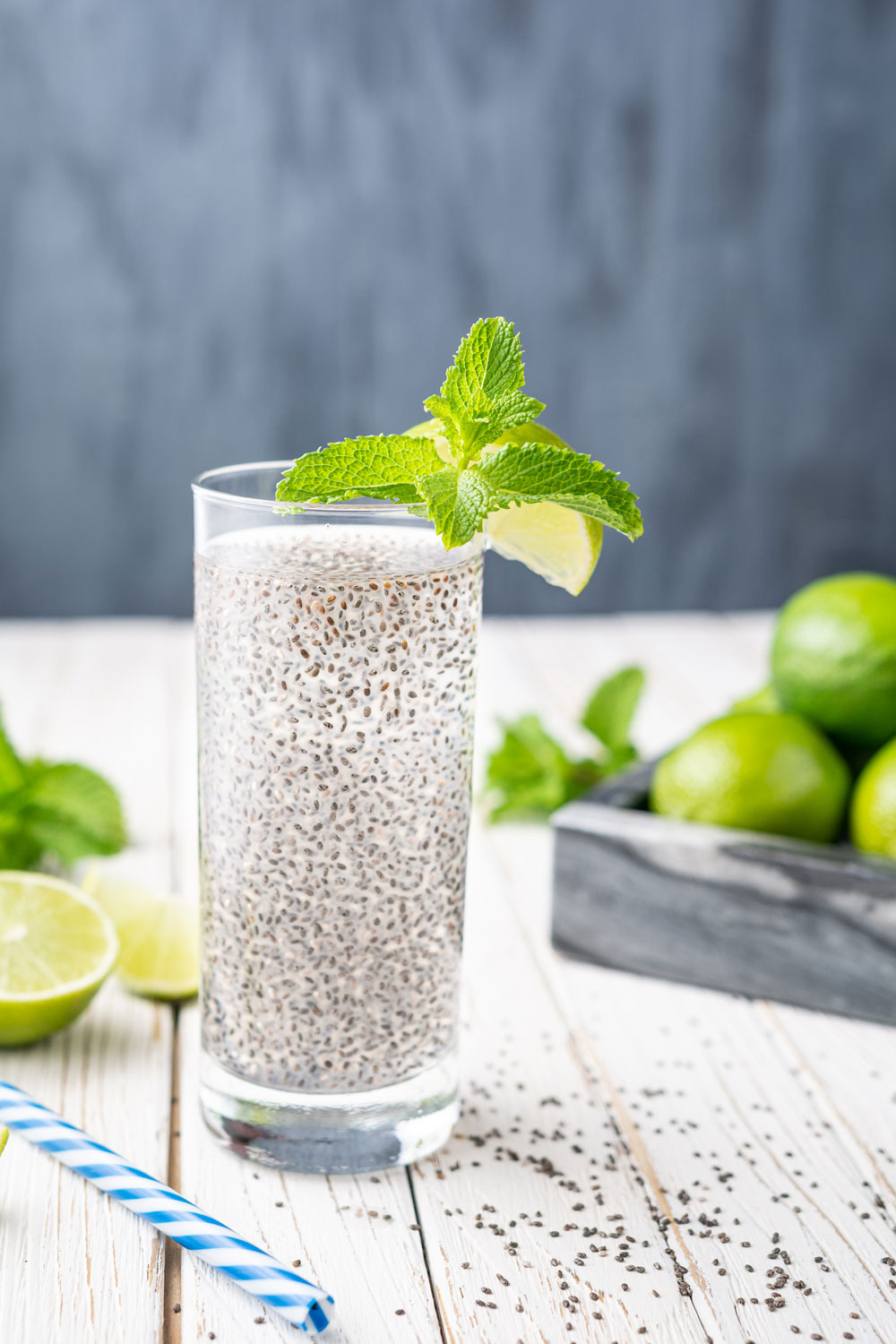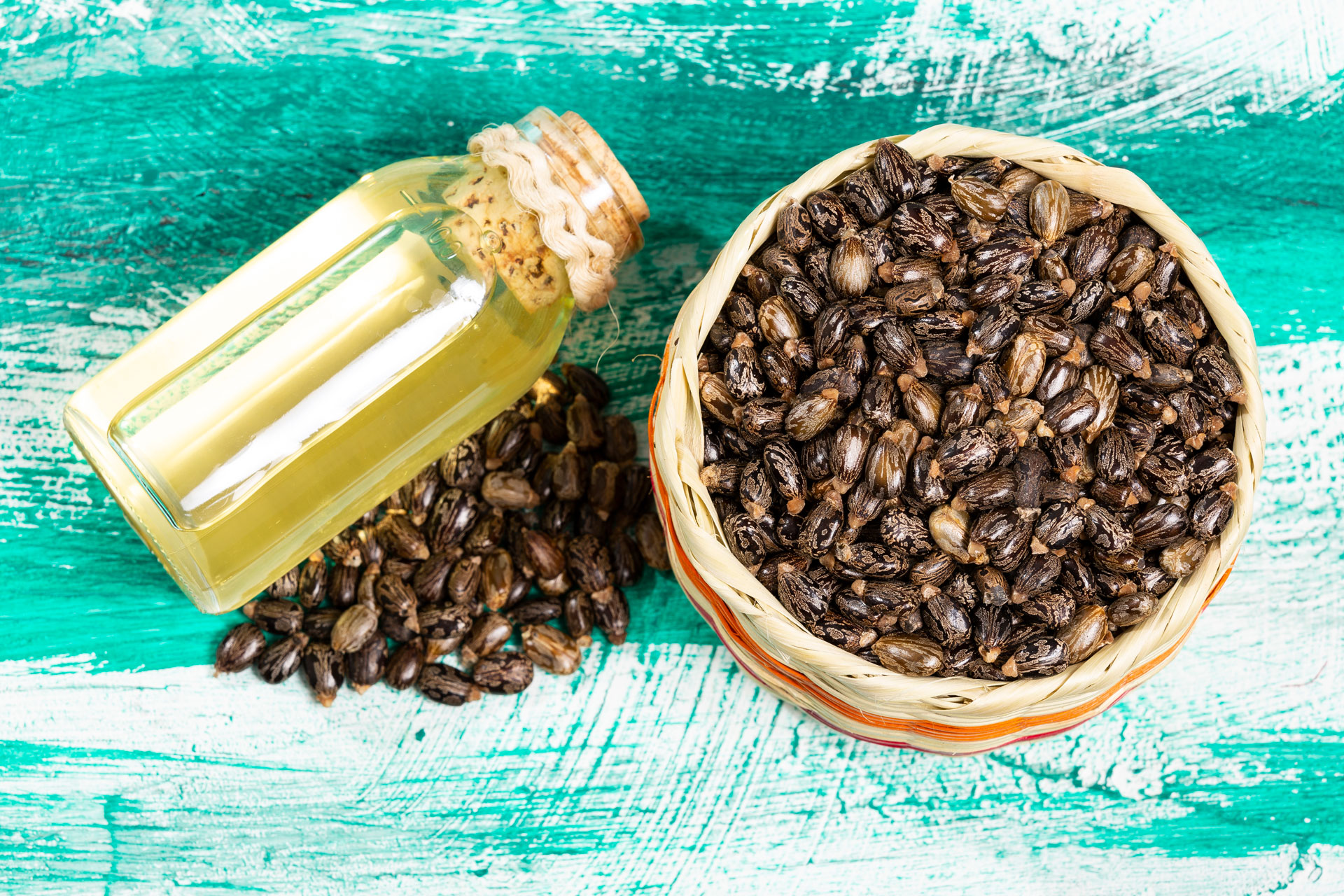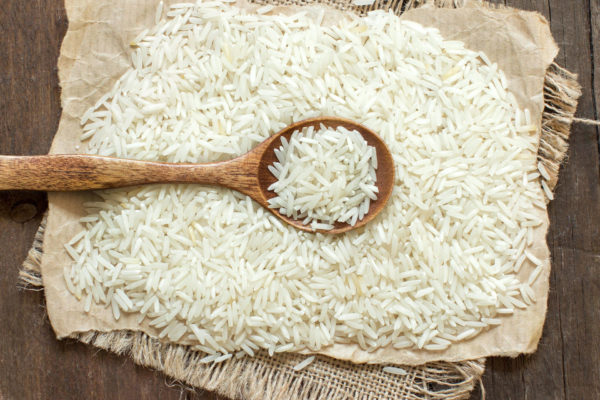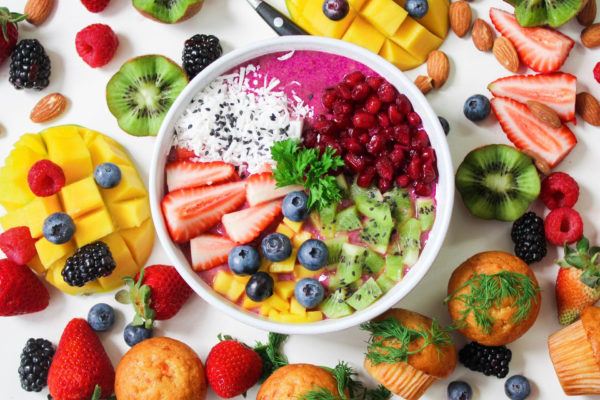
5 TikTok Wellness Trends Debunked By A Nutritionist
By
7 months ago
From chia seed water to raw milk
TikTok is overloaded with so-called wellness hacks offering advice on everything from improving sleep to reducing inflammation. But the majority of this advice is not backed by science, or recommended by health experts – and some trends may even be dangerous. So which ones are worth trying, and which are best ignored? Here nutritional therapist Erin Viljoen from online wellbeing platform W-Wellness shares her expert thoughts on some of TikTok’s biggest wellness trends of the moment.
Are These TikTok Wellness Trends Fads?
Tadpole Water
The humble chia seed was in vogue back in 2012, but it has had a resurgence on TikTok lately. These days, people are mixing the seeds with water and a squeeze of lemon, creating the TikTok-famous ‘tadpole water’ drink, which is being hailed for its digestion and weight loss perks.
There’s no denying chia seeds are nutritionally beneficial, but is this the best way to consume them? ‘Individually all three of the components of ‘tadpole water’ have health benefits: chia seeds – high in fibre, contain antioxidants, can support hydration levels; lemon juice/slices – high in vitamin C which can support the immune system, enhance iron absorption, aid digestion and improve skin health; and finally water – critical for maintaining adequate hydration, and supporting every system and function of the body. So, combining these ingredients might help someone feel fuller for longer, increase their water intake, regulate their bowel movements, etc. and that’s fantastic, however it’s not going to be a miracle cure for… well, anything!
‘Also, it’s important to be aware that chia seeds may slow the absorption of certain medications, such as those prescribed for high blood pressure, cardiovascular conditions (antiplatelets and anticoagulants) and diabetes – potentially reducing their effectiveness, so a high intake of chia seeds should be avoided if a person is on any of these medications without consulting a medical professional first.’

(c) Getty Images
Bromelain and Rutin Supplements
Bromelain and rutin supplements are one of TikTok’s biggest wellness trends right now, with over 622,000 searches for the terms on the platform. Often paired together to help balance the body’s inflammatory response, bromelain is a natural enzyme found in pineapple, while rutin is a plant-based antioxidant. Devotees are claiming they help with everything from weight loss to improved gut health, but what does a nutritionist think?
‘TikTok is spot on – both bromelain and rutin have numerous health benefits,’ says Erin. ‘If someone is interested in taking either of these compounds for a particular health condition or goal, then supplementing with them would be the best way to experience significant improvements – and this is where it would be beneficial to speak to an expert to find out if this is the best supplement to support your health goals, supplement brands, formulations, dosages, interactions – and importantly “the why” (beyond “because TikTok says it will help me lose weight”).’
She adds: ‘alternatively, if a person is looking to optimise their health, reduce general inflammation in their body, and increase antioxidant status, eating pineapple or drinking pineapple juice (bearing in mind the high sugar content) will provide some level of bromelain, and including foods such as apples, buckwheat, figs, and raspberries will increase their intake of rutin. But for a therapeutic dose, supplementing (with advice from an expert on how) is definitely the way to go.’
Magnesium Oil
There has been a lot of buzz around magnesium this year, particularly surrounding its impact on sleep. The supplements have grown increasingly popular, but lately TikTokers have discovered magnesium oil, which is applied topically rather than taken orally, with claims suggesting this results in better absorption. But is that true?
‘While supplementing with all-important magnesium and the positive effects of doing so has been studied in detail and extensively documented, evidence to support the use of topical magnesium is limited,’ says Erin. ‘Certainly, the mechanism of absorbing transdermal magnesium makes sense in theory (entering the lymphatic system beneath the dermis then entering the circulatory system, bypassing regulation through the GI tract and thereby increasing serum magnesium) however there is little scientific evidence to support this concept.
‘Furthermore, the question of dose comes into play – as it’s hard to accurately determine dosage when using topical magnesium oil. Therefore, until scientific research says otherwise, the surest way to increase magnesium levels is through oral supplementation.’

Getty Images
Castor Oil
Anti-inflammatory, antibacterial and highly moisturising, castor oil has long been used to soothe wounds on the skin. However, recently TikTokers have been applying the oil topically on the stomach, which devotees claim can help with bloating. Searches for ‘castor oil for bloating’ have increased by 65 percent over the past week, but will this actually do anything?
‘There is little medical evidence in favour of the efficacy of castor oil packs, however anecdotally people report that castor oil packs can help relieve pain, reduce inflammation, alleviate constipation, and support detoxification,’ says Erin. ‘Where I struggled to find a shred of scientific evidence is in the support of applying castor oil to your belly button to do anything more than moisturise it.’
Raw Unpasteurised Milk
This controversial trend has seen TikTokers drinking unpasteurised milk, particularly in the US, with some people claiming it has more nutrients and fewer chemicals. However, the Food and Drug Administration (FDA) strongly recommends against drinking raw milk, as it can contain harmful bacteria.
Erin agrees, saying: ‘The health risks of consuming raw milk far outweigh its perceived benefits. While pasteurisation may partially degrade some water-soluble vitamins, such as vitamin C and certain B vitamins (though only vitamin B2 is notably present in milk), fat-soluble vitamins like A, D, E, and K – found in substantial amounts in milk – remain largely unaffected due to their heat stability. Pasteurisation also has minimal impact on fats and carbohydrates and causes only minor protein denaturation. Overall, the nutritional losses from pasteurisation are minor compared to its crucial role in preventing foodborne illnesses.’









